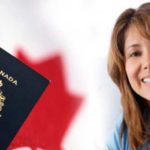When considering immigration, securing a Permanent Residency (PR) Visa is often the ultimate goal for many individuals and families. One of the critical factors influencing your eligibility for a PR Visa is your occupation, particularly if you are applying through a points-based immigration system. Countries like Australia, Canada, and New Zealand use occupation lists to identify in-demand jobs that are essential to their economies. Understanding these occupations can significantly improve your chances of success. In this blog, we’ll explore some of the most in-demand occupations for a PR Visa, the process involved, and the importance of professional guidance from a visa consultant and immigration experts.
The Role of Occupations in Securing a PR Visa
Occupation plays a pivotal role in the PR Visa application process. Many countries prioritize applicants who possess skills and experience in occupations that are in high demand. These occupations are typically listed on Skilled Occupation Lists (SOL), which are regularly updated to reflect the changing needs of the economy.
By focusing on in-demand occupations, countries can fill gaps in their labor markets, thereby boosting economic growth. For applicants, having an occupation on these lists not only increases their chances of securing a PR Visa but also often leads to a smoother migration process, including pre-landing and post-landing stages.
Most In-Demand Occupations for a PR Visa
While the specific occupations in demand can vary by country and over time, several professions consistently appear on these lists across multiple nations. Here are some of the most sought-after occupations for a PR Visa:
1. Healthcare Professionals
Healthcare is a universal priority, and skilled healthcare professionals, such as doctors, nurses, pharmacists, and allied health workers, are in high demand globally. Countries like Canada and Australia are actively seeking healthcare workers to support their aging populations and expanding healthcare systems. If you have qualifications and experience in healthcare, your chances of obtaining a PR Visa can be significantly enhanced.
2. Information Technology (IT) Specialists
The tech industry continues to grow rapidly, with a constant demand for IT professionals. Software developers, systems analysts, cybersecurity experts, and IT project managers are highly sought after in countries like the United States, Australia, and Canada. With the rise of remote work, many IT roles are now considered critical, making them top candidates for PR Visas.
3. Engineers
Engineering remains a cornerstone of modern infrastructure and technological development. Civil, mechanical, electrical, and software engineers are among the most in-demand occupations. Countries like Australia and Canada have a strong need for engineers to support their construction, energy, and technology sectors, making it easier for these professionals to secure a PR Visa.
4. Tradespeople
Skilled tradespeople, such as electricians, plumbers, and carpenters, are essential to any growing economy. These occupations often face shortages, leading to high demand in countries like New Zealand, Australia, and Canada. If you are a qualified tradesperson, your skills may open doors to permanent residency in these nations.
5. Teachers
Education is a critical sector, and qualified teachers, particularly in STEM (Science, Technology, Engineering, and Mathematics) subjects, are in high demand. Countries like the United Kingdom, Australia, and Canada are actively seeking teachers to address shortages in schools and universities, offering pathways to a PR Visa for those with the right qualifications and experience.
6. Accountants and Financial Analysts
The global economy relies heavily on finance professionals, and there is a consistent demand for accountants, auditors, and financial analysts. These roles are crucial for businesses of all sizes, and countries with growing economies often prioritize these occupations in their PR Visa programs.
The Pre-Landing and Post-Landing Process
Securing a PR Visa is not just about having an in-demand occupation; it also involves navigating the pre-landing and post-landing processes. These stages are critical to ensuring a smooth transition and successful integration into your new country.
Pre-Landing Process
The Pre Landing process includes everything that needs to be done before you arrive in your chosen country. This involves gathering and submitting the necessary documents, such as your qualifications, work experience, and language proficiency test results. It also includes obtaining a skills assessment for your occupation, which is often required for a PR Visa.
Working with a visa consultant and immigration experts during this stage can be incredibly beneficial. They can guide you through the complex requirements, help you avoid common mistakes, and increase your chances of success.
Post-Landing Process
Once you’ve obtained your PR Visa and arrived in your new country, the Post Landing process begins. This stage includes finding accommodation, securing employment, and understanding the local culture and legal requirements. A visa consultant can continue to offer support during this stage, helping you to settle in more quickly and efficiently.
For example, if you are a healthcare professional moving to Canada, post-landing support might include assistance with getting your credentials recognized and finding a job in your field. For IT professionals, it might involve networking opportunities and job placement services.
The Importance of a Visa Consultant and Immigration Experts
The process of obtaining a PR Visa can be daunting, especially when navigating the intricacies of pre-landing and post-landing requirements. This is where the expertise of a visa consultant and immigration experts comes into play. These professionals have in-depth knowledge of immigration laws, policies, and procedures, and they can provide tailored advice based on your specific circumstances.
Visa consultants can help you identify the best pathway to permanent residency based on your occupation, qualifications, and personal goals. They can also assist in preparing your application, ensuring that all documentation is accurate and complete, and represent you in communications with immigration authorities.
Moreover, immigration experts can provide valuable post-landing support, helping you to integrate smoothly into your new country. From finding a job to understanding your rights and responsibilities as a PR Visa holder, their guidance can make a significant difference in your migration journey.
Conclusion
Securing a PR Visa is a complex process that requires careful planning and preparation. By focusing on in-demand occupations and working with experienced visa consultants and immigration experts, you can increase your chances of success. Whether you’re a healthcare professional, IT specialist, engineer, or tradesperson, there are numerous opportunities to obtain permanent residency visas in your chosen country. Remember, the journey doesn’t end with receiving your visa; navigating the pre-landing and post-landing processes is equally important for a successful migration.






